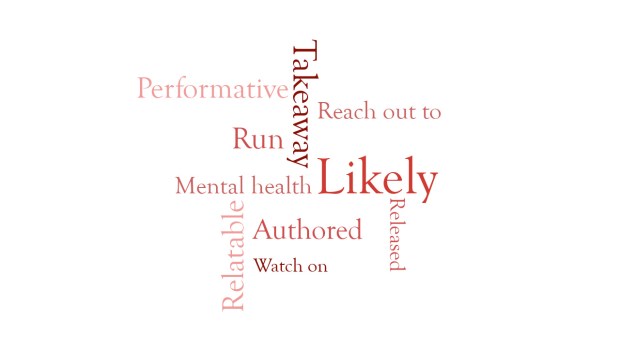‘Come off it,’ said my husband when I told him that upcycling was the word of the year. His response did not chime with the spirit of the Cambridge Dictionary in naming it: ‘We think that our fans resonated with upcycling not as a word in itself but with the positive idea behind it.’
I prefer words in themselves. But what was the dictionary to do? It posts a Word of the Day on Instagram, and upcycling received more ‘likes’ than any other Word of the Day.
Over at Collins Dictionary, they noticed a hundredfold increase in the use of climate strike in 2019, and made it the Collins word of the year. Last year, it had been single-use, an adjective qualifying plastic.
One notices a trend towards environmental terms. It is not that, in unprompted conversation at the Moreton-in-Marsh stop for the 801 bus to Bourton-on-the-Water, climate strikes and upcycling dominate. But such language attracts concentrated usage on social media. I had thought Instagram was for pictures, not words. I was wrong. For all I know, between dance-move videos, TikTok will come up with its own word of the year too.
Words of the year are part of big-business dictionary wars. Respectable newspapers give free publicity to their choices. Some seem feeble. A Collins shortlist candidate was bopo. If you use the word bopo, your interlocutor will say ‘What?’ or ‘Pardon?’ according to how they were brought up. They might think you meant BoJo, a humorous name for Boris Johnson. It also sounds like that earlier flash-in-the-pan fomo. Bopo is a portmanteau word from ‘body positivity’ and fomo is an acronym standing for ‘fear of missing out’.
A couple of years ago, I didn’t even know the meaning of the word voted for by the American Dialect Society: dumpster fire. I wasn’t quite sure what a dumpster was.
I discover it is more than a dustbin, or trash can as they say. It has a different character from our skip and is bigger than our wheelie bin but engages with the hydraulic equipment of the dustcart (garbage truck) for emptying. The origin of dumpster seems to be a patent of 1937 by Dempster Bros for the Dempster Dumpster. The upshot is that dumpster fire is used in America as a metaphor for a poorly handled situation that has got out of control.
My own words of the year emerge by their annoyance quotient. I still haven’t stopped being annoyed by So at the beginning of explanatory utterances. I wrote about that in 2011, and, as Theresa May used to say, nothing has changed. On Radio 4, anyone from a university begins a little speech with So.
In the past I have toyed with shouty, hi, yeah and safe, of which the least annoying was yeah. This year I have watched the continuing descent of likely into exclusive use as an adverb meaning probably. Anything ending in ly is taken to be an adverb. In 1964, the phrase likely lad was idiomatic enough to figure in the title of a comedy series. Would Likely Lads now be thought to mean ‘probably lads’, as if they were of a gender-fluid nature?
The word that most annoyed me in 2019 is veteran. The War Pensions Agency changed its name to the Veterans Agency in 2003, and in 2007 this was rebranded as Veterans UK. At the last count there were 2.4 million UK veterans in Great Britain, 99 per cent white and 89 per cent male. The percentages would be higher for those who had seen active service. The Ministry of Defence defines as a veteran anyone over 16 who has served at all in the Armed Services. But a study by Howard Burdett and others in 2012, published in Armed Forces and Society, found that only half the ex-Service personnel asked regarded themselves as veterans.
The concept of veteran demands length of service, reinforced by the length of time since it occurred. Men who served in Korea may be veterans, though the war there lasted only three years.
At heart the difficult is that Americans routinely speak of veterans or vets with reference to old soldiers, many having served in Vietnam. Although it runs foul of MoD anti-sexism, the ordinary term in British English is ex-Serviceman.
When we are travelling in Spain my husband enjoys tucking in to Veterano brandy for breakfast. I encourage him to try another brand called Insuperable, but that is too much even for a veteran like him.
Got something to add? Join the discussion and comment below.
Get 10 issues for just $10
Subscribe to The Spectator Australia today for the next 10 magazine issues, plus full online access, for just $10.
You might disagree with half of it, but you’ll enjoy reading all of it. Try your first month for free, then just $2 a week for the remainder of your first year.















Comments
Don't miss out
Join the conversation with other Spectator Australia readers. Subscribe to leave a comment.
SUBSCRIBEAlready a subscriber? Log in